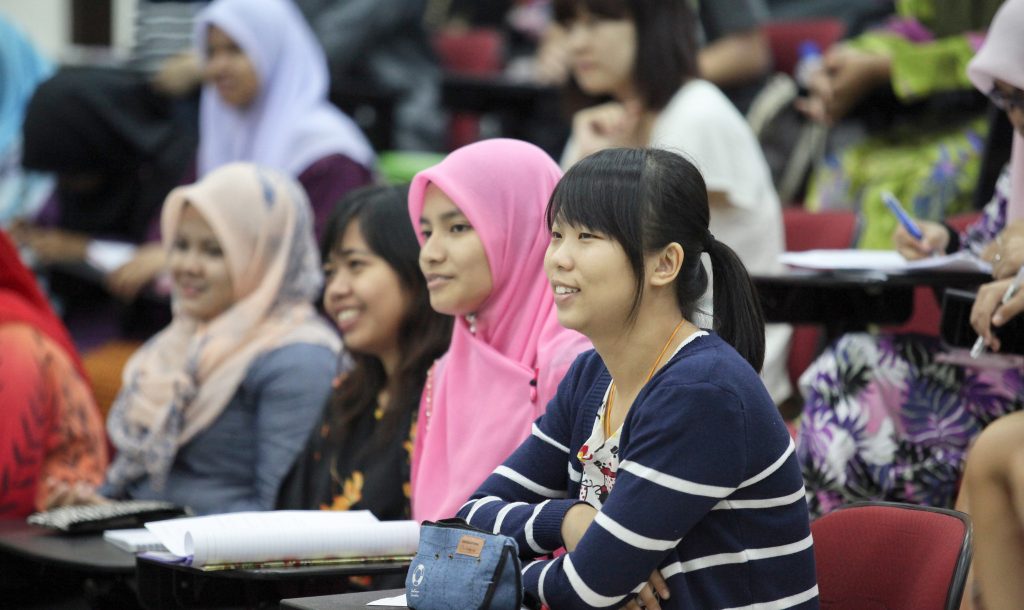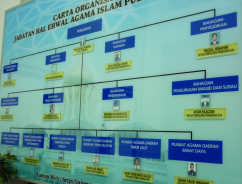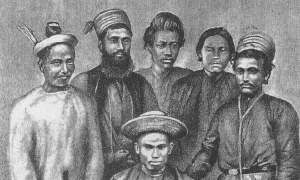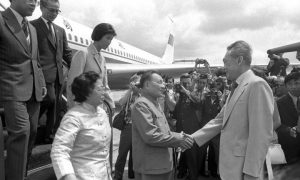“This is a new era. I will make sure that the Pakatan Harapan (PH) government will never misuse universities for political interests … this includes me. We will neither control and dictate to them [the universities] nor force them [to do anything]. We really want the universities to enjoy their autonomy and cultivate academic freedom.” (Maszlee Malik)
Nearly a month after the historic victory that ended Barisan Nasional’s 61 years in power, Education Minister Dr Maszlee Malik gave the assurance above that there would not be any political interference in universities. That promise was in line with the Pakatan Harapan (PH) manifesto, which pledged to restore the authority and independence of institutions of higher learning, encompassing autonomy in governance and guarantees of academic freedom and freedom of speech.
Reflecting this spirit of reform, Maszlee had in June 2018 met with representatives of the Malaysian Academic Movement (MOVE, or GERAK, its acronym in Malay), which has been at the forefront of advocating for reforms in institutions of higher learning for the last two decades. He seemed supportive of GERAK’s ten demands for reform of institutions of higher education. These demands include putting a stop to political appointments to top university management and leadership posts and replacing political appointees with respected, independent-minded, and accountable academicians. GERAK’s proposed restructuring of university administration is significant, with the underlying premise of changing the entrenched feudal academic culture of hierarchy and subordination to a political master to an academic culture based on mutual respect, critical engagement and academic freedom. In the interim, GERAK recommended the establishment of a National Search Committee comprising eminent scholars, representatives from civil society, corporate leaders, and officials from the Ministry of Education to appoint new university top management.
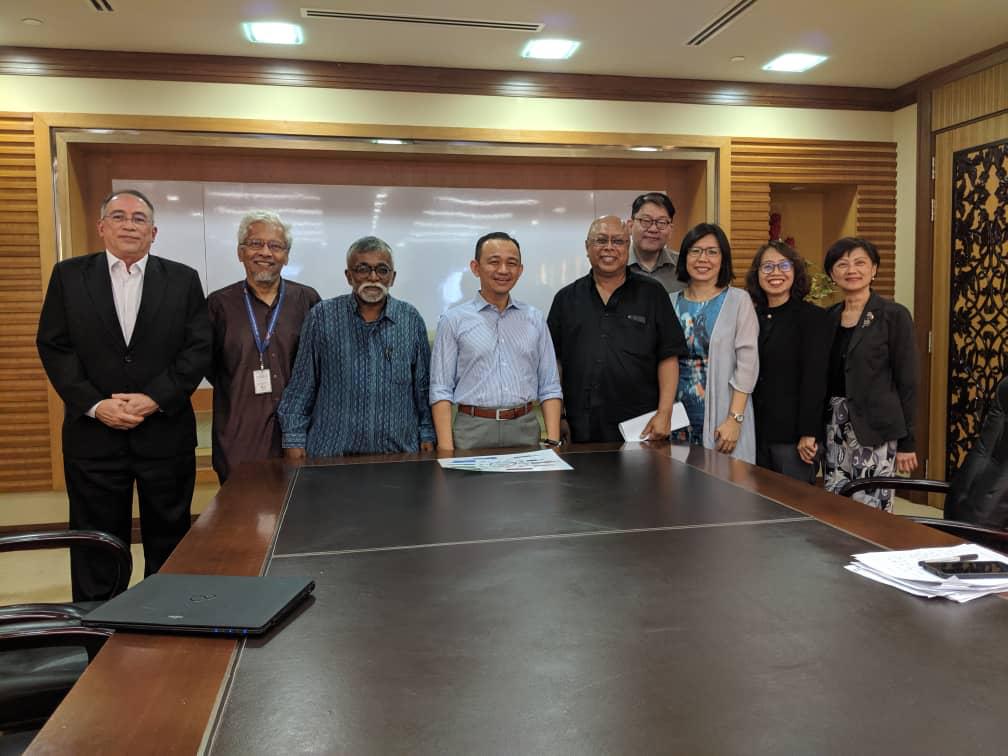
GERAK’s follow-up meeting with Minister Maszlee, 31 May 2019. (Photo: Office of the Minister of Education, Malaysia.)
Persistence of political appointments for public universities
Maszlee terminated the services of the heads of five universities, all Barisan Nasional political appointees: Zaki Azmi of Universiti Malaysia Sabah, Noorul Ainur Mohd Noor of Universiti Sains Malaysia, Anuwar Ali of Universiti Putra Malaysia, Sufri Mohd Zin of Universiti Tun Hussein Onn, and Kamaruddin Hussin of Universiti Sultan Zainal Abidin. However, political patronage is still deeply entrenched in the system. Significantly, Maszlee reneged on the PH Manifesto in making political appointments, including of Mohd Nizam Morad, his political secretary, to the board of directors of Universiti Utara Malaysia and of Muhammad Nur Manuty, PH chairperson, to head the board of directors of Universiti Sultan Zainal Abidin. In addition, Dr Mohd Ghazali Abas, the secretary general of the Education Ministry as of June 2018, is also a member of the board of directors of Universiti Kebangsaan Malaysia, contradicting the PH manifesto’s commitment to upholding university autonomy. This political interference in the governance of institutions of higher education culminated with Education Minister Maszlee’s own appointment as president of the International Islamic University Malaysia (IIUM) on 5th September 2018. Both GERAK and student activists were highly critical and called for his resignation from the post. Maszlee was initially reluctant to resign, stating that he would lead changes from within until the university became the “Oxford of Muslim nations”. In what appeared to be an attempt to sidestep the issue of political appointment, he also painted himself as a benevolent leader who would work towards such a goal without any extra pay. Clearly, patronage politics is still the preferred mode of governance.
Amidst sustained protest by student activists, Dr Maszlee resigned as President of IIUM in early January 2019. At one stage, four student activists staged a sit-in demonstration in front of the Ministry of Education building. Two of them were arrested. In expressing his sadness over the students’ arrest and apologizing for having been unable to meet with them, Maszlee nevertheless insisted that their arrest was beyond his control as the police are not under his jurisdiction. Interestingly, Maszlee’s use of imagery of a father who needs to listen to his children’s (the students’) complaints while showing a caring side also suggested a paternalistic dimension, in which authority resides with him, the father.
As many of the comments following YouTube coverage of the demonstration demonstrate, those protesting were described as lazy, ungrateful, and deserving of expulsion from university, and were generally chastised for not focusing on their studies. This is because student protest is not mainstream in Malaysia. Student activists themselves have shared that they have had a hard time in university due to negative perceptions of their participation in the sit-in protest. This anti-activist culture suggests that the repeal of various acts that constrain academic freedom will not suffice to free minds conditioned and shackled for decades to respect and defer to authority rather than to pursue critical or independent thinking. Maszlee met with students and appointed a student representative to the committee to reform the Universities and University Colleges Act (UUCA) 1971 only after the protest, indicating that even these concessions were hard-won. In contrast, representatives from the academic staff had already been appointed to the committee to reform the UUCA. What has transpired suggests that vigilance is key, as the political culture of academic freedom and university autonomy have not taken root yet in the minds of the powers that be.
Slow progress in amending acts governing academic freedom
Facing pressure to abolish the UUCA, Deputy Minister of Education Teo Nie Ching had in August 2018 given a time frame of five years, purportedly due to the need for consultation with concerned stakeholders. However, the backlash that Maszlee’s appointment as president of IIUM and his initial reluctance to resign generated helped to fast-forward legal reform. On 10 December 2018—incidentally, the date chosen to honour human rights globally—Parliament passed amendments to the UUCA, the Private Higher Educational Institutions Act (PHEIA) 1996, and the Educational Institutions (Discipline) Act (EIDA) 1976. These amendments enable students in both public and private institutions to participate in political activities on campus. Significantly, ongoing disciplinary actions that were instituted against students for their political activities within campus grounds were also suspended.
Nonetheless, the amendment of only Section 15(2)(c) of the UUCA, which barred students from participating in political party activities on campus, falls short of what student activists had demanded: to repeal Sections 15 and 16 entirely. In other words, students’ academic freedom and right to organise are still not guaranteed, given existing provisions of Sections 15 and 16:
- Section 15 (2) (a) bars students from becoming members of any unlawful political organisations, societies or groups;
- Section 15 (2) (b) bars students from becoming members of any societies, organisations, or groups, excluding political parties, that the University Board deems to be “unsuitable to the interests and well-being of the students or the University”;
- Sections 15A (1 and 5) bar students from promoting and/or collecting donations;
- Section 16 (1) empowers the vice-chancellor to suspend or dissolve any student organisations or groups; and
- Section 16 (b) (1) provides for the vice-chancellor to be the disciplinary authority in relation to students of the University.
For advocates, the call for the repeal of Sections 15 and 16 is both substantive and symbolic, as these sections were introduced in the 1975 amendments that quelled the vibrant student activism for social justice that started in the 1960s. However, Maszlee has indicated that the UUCA will be abolished by 2020. The contention that regulations regarding the establishment, governance, structure, and administration of universities and university colleges need to be put in place before the UUCA is abolished is understandable. Even so, the failure to repeal Sections 15 and 16 was a huge disappointment to advocates for academic freedom and freedom of association for students. Clearly, the present government is still steeped in a controlling mindset rather than trusting and freeing young-adult students to think critically and manage for themselves.
Other than the UUCA, GERAK’s ten points also highlight a slew of acts that curtail academic freedom and call for their abolishment or exemption. Chief among these are Act 605, Statutory Bodies (Discipline and Surcharge), which governs the conduct of statutory bodies, including academic staff in public universities; administrative requirements such as the pledge of loyalty required of academic staff in public universities, which makes it possible to interpret being critical as being disloyal; and the Sedition Act. On the other hand, the PH government has attempted to repeal the Anti-Fake News Act 2018, which was introduced just before the last general election. This law bears heavily on freedom of speech, including academic freedom. Its repeal passed in the House of Representatives but was rejected by an opposition-dominated Senate. However, reconsideration of the repeal is only delayed for a year, during which time, the composition of the Senate is bound to change, as some senators’ terms expire.
Inclusiveness still an elusive dream
The ultimate promise the PH government made in its election manifesto was to rebuild the nation based on five pillars, one of which—Pillar 5—is to “create a Malaysia that is inclusive, moderate and respected globally”. Pillar 5 offers a critique of the previous Barisan Nasional (BN) government and, specifically, the United Malays National Organisation (UMNO), the dominant partner in the coalition, which has “long-played the racial and religious card, pitting one race with the other for the sake of short-term political expediency”. Instead, the manifesto pledges to implement policies that bring about a united and inclusive nation—one that is a “global model of inter-racial and inter-religious harmony”. Indeed, that Dr Mahathir Mohamad, the current prime minister, steadfastly followed through with his decision to appoint Tommy Thomas, a non-Malay and non-Muslim, as attorney general, raised hopes that the new Malaysia will indeed break with the racial politics of the past. Significantly, the opposition to Thomas’s appointment was on the basis of race and religion. Mahathir did not waver, even in the face of an impasse with the palace. The appointment is significant, as it suggests an emerging change to racial narratives; Malaysia’s last non-Malay, non-Muslim attorney general was in 1970–74. Similarly, Lim Guan Eng is the first non-Malay, non-Muslim Minister of Finance since 1974. Prior to his recent retirement, Richard Malanjum, a non-Muslim, also became the first Sabahan to be appointed as Chief Justice, under the present PH government.
However, deeper analysis in the context of higher education suggests this narrative of being inclusive and abandoning use of the racial and religious card is anomalous, mere tokenism, or the result of certain political configurations rather than a general emerging pattern.
A clamour for Islamic reform in Malaysia: but in which direction under a Divine Bureaucracy?
Can Malaysia's new government depend on its unelected Islamic bureaucracy?
More broadly, the inclusive agenda becomes even more distant in light of the matriculation program, which Prime Minister Mahathir describes as a pre-university “backdoor” program, with a quota of 90% percent for bumiputera (sons of the soil, including both indigenous peoples and Malays) and 10% for others. In contrast, the main route to public higher education for those considered non-bumiputera, for example, Chinese and Indians, is through the tougher Malaysian Higher Education Certificate (STPM) system, which is also open to bumiputera. Maszlee caused a furore when he justified continuing the matriculation program on the basis that the job market discriminates against Malays because they cannot speak Mandarin and that non-Malays are well-off and can send their children for private education. He was rightly criticised for his failure to see that Mandarin is a skill-set and for homogenising non-Malays as affluent. The narrative of inclusion and meritocracy is glaringly missing. Even as the GERAK reform document recognises the need for affirmative action, it recommends a different model. Point four of GERAK’s reform document calls for upholding meritocracy over “kulitocracy” (in terms of skin colour) for student enrolment or faculty recruitment. Specifically, criteria for admission would be based on merit alongside an affirmative preference for those who are economically disadvantaged or have special needs, and for reflecting the diversity of Malaysian society.
Embers of hope
While changes have been slow and uneven, the new PH government has been relatively receptive to public criticism. Mahathir withdrew himself from the Education portfolio initially, due to public censure and pressure to uphold the PH manifesto, which pledges that the prime minister will not hold any other ministerial posts. Similarly, Maszlee had to resign from the presidency of IIUM to honour the PH manifesto’s promise to end political appointments. This opening of space has further provided leverage to advocate for various practices that impact negatively on academic excellence and/or integrity. Examples include the awarding of grants for research based on patronage and seniority rather than the merit of the research proposal, the institutional practice in public universities of requiring postgraduate students to co-publish with their supervisors to improve a university’s ranking, and the ineffective or inadequate redress of sexual harassment in institutions of higher education.
Nonetheless, to the extent that reform of institutions of higher education requires changing mindsets entrenched in patronage politics and feudal culture, reform will be a painstakingly slow and gradual process. For now, political appointments and racial politics are still being practised. And as most political parties are still race-based, even within the PH coalition itself, we can expect racial politics to be a main staple for a long time to come, with higher educational institutions persisting in its grip.
 Facebook
Facebook  Twitter
Twitter  Soundcloud
Soundcloud  Youtube
Youtube  Rss
Rss 